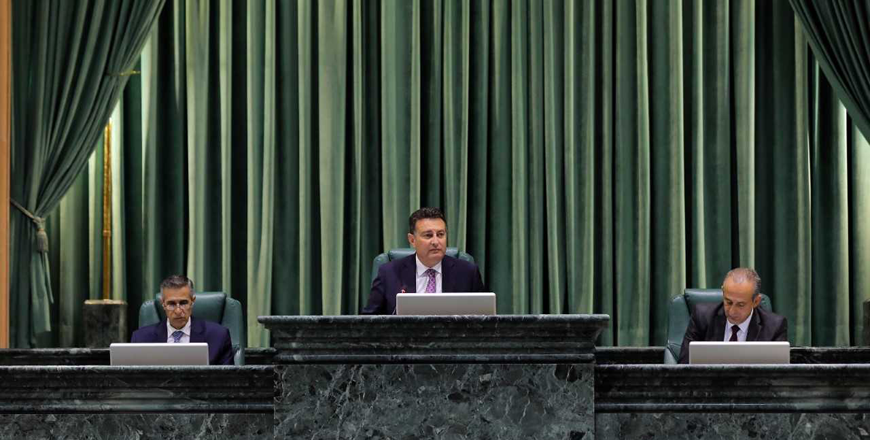AMMAN — The Lower House on Tuesday, during a session chaired by Lower House Speaker Ahmad Safadi, endorsed the chamber's rules of procedure and the parliamentary code of conduct.
The amendments to the rules of procedure were in line with the recent constitutional amendments, which concerned the resignation of the speaker and lawmakers, the Jordan News Agency, Petra, reported
The speaker's resignation is effective from the date of its deposit with the Secretariat General of the House and the deputy's resignation is effective from the date of its submission to the speaker.
Under the amendments, if no woman member of the House has won the positions of speaker or deputy speaker, one of the seats of assistant speaker is reserved for women only, and the permanent committees of the Chamber have been increased to 20, up from 15.
In accordance with the new amendments, financial deductions will be imposed on the deputy who fails to attend sessions without excuse, and a new amendment will be introduced whereby penalties will be imposed on the lawmaker whose absence exceeds eight consecutive sessions or 15 separate sessions.
The Lower House also approved the Parliamentary Code of Conduct, whereby the MP is obliged to provide and maintain certified financial disclosure, avoid conflicts of interest, do not disclose the parliamentary capacity unnecessarily and do not use terms that threaten, insult, provoke or insult anyone.
Lawmakers are also entitled not to use cliché or prejudicial or intolerant language and to avoid personal abuse of any person, not to vote for another member whether present or absent, not to interfere in the voting or to tamper with the confidentiality of the ballot in any way, and not to declare the results of the vote or any order taken in private meetings.
Deputies shall also not boycott the Chamber's work in general, not use extreme hostile language in speech, refrain from violent protests or riots within the House, avoid physical or verbal threat to anyone, and not use telephone, food or smoking during sessions and meetings.
According to the code, the MP is obliged to declare the interests he or she knows or feels at all times, to prohibit abuse of the parliamentary office for his or her own benefit or personal interest, and to avoid conflicts of interest when discussing laws or using any parliamentary tools.
The code also stipulates that the deputy shall respect the message of the media and journalists as a supervisory governor of the Chamber and an important source of information on issues of concern to society.
The Deputy shall avoid any prejudice to the interests, principles, values and beliefs of the country and shall not engage in matters pending before the courts or concerning the secrets of the armed forces and security services.
According to the code, the deputy-minister relationship is based on mutual respect on personal aspects, where the MP acts as a watchdog by the ways and means laid down by the Constitution and the law. The lawmaker shall not intervene in judicial matters, customs and income tax services, or visit ministers and all government departments in his capacity as lawmaker but through a scheduled appointment.
The code further states that the MP's relationship with his or her bloc or political party is based on full compliance with the principles established by the legislation, regulations and party charters that govern such a relationship.
